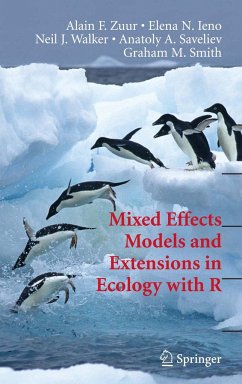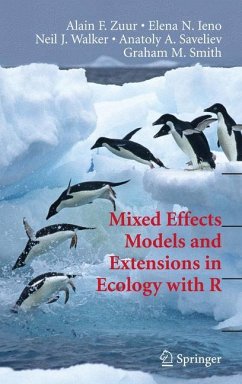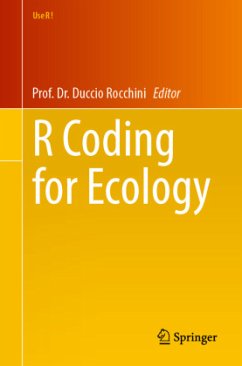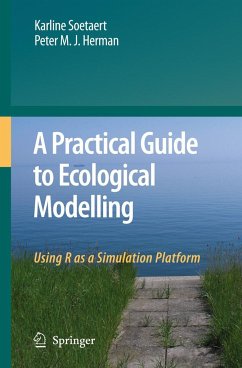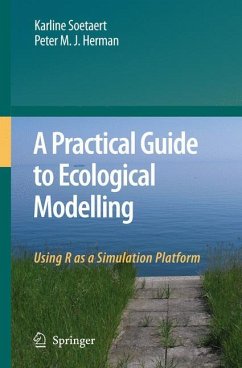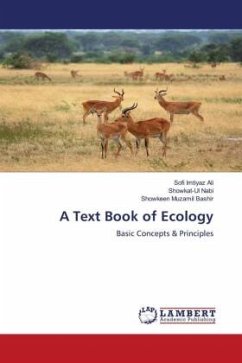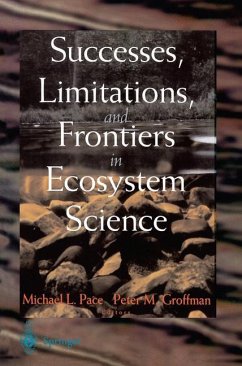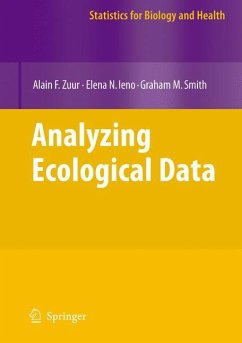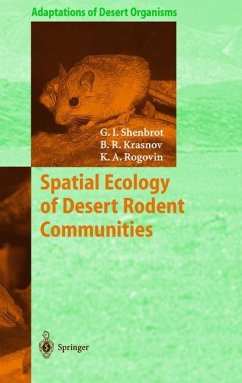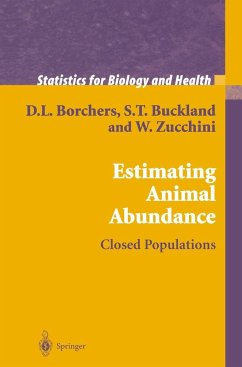
A Primer of Ecology with R

PAYBACK Punkte
47 °P sammeln!
Ecology is more quantitative and theory-driven than ever before, and A Primer of Ecology with R combines an introduction to the major theoretical concepts in general ecology with a cutting edge open source tool, the R programming language. Starting with geometric growth and proceeding through stability of multispecies interactions and species-abundance distributions, this book demystifies and explains fundamental ideas in population and community ecology. Graduate students in ecology, along with upper division undergraduates and faculty, will find this to be a useful overview of important topi...
Ecology is more quantitative and theory-driven than ever before, and A Primer of Ecology with R combines an introduction to the major theoretical concepts in general ecology with a cutting edge open source tool, the R programming language. Starting with geometric growth and proceeding through stability of multispecies interactions and species-abundance distributions, this book demystifies and explains fundamental ideas in population and community ecology. Graduate students in ecology, along with upper division undergraduates and faculty, will find this to be a useful overview of important topics.
In addition to the most basic topics, this book includes construction and analysis of demographic matrix models, metapopulation and source-sink models, host-parasitoid and disease models, multiple basins of attraction, the storage effect, neutral theory, and diversity partitioning. Several sections include examples of confronting models with data. Chapter summaries and problemsets at the end of each chapter provide opportunities to evaluate and enrich one's understanding of the ecological ideas that each chapter introduces.
R is rapidly becoming the lingua franca of quantitative sciences, and this text provides a tractable introduction to using the R programming environment in ecology. An appendix provides a general introduction, and examples of code throughout each chapter give readers the option to hone their growing R skills.
"The distinctive strength of this book is that truths are mostly not revealed but discovered, in the way that R-savvy ecologists-empirical and theoretical-work and think now. For readers still chained to spreadsheets, working through this book could be a revolution in their approach to doing science." (Stephen P. Ellner, Cornell University)
"One of the greatest strengths...is the integration of ecological theory with examples ... pulled straight from the literature." (James R. Vonesh, Virginia Commonwealth University)
In addition to the most basic topics, this book includes construction and analysis of demographic matrix models, metapopulation and source-sink models, host-parasitoid and disease models, multiple basins of attraction, the storage effect, neutral theory, and diversity partitioning. Several sections include examples of confronting models with data. Chapter summaries and problemsets at the end of each chapter provide opportunities to evaluate and enrich one's understanding of the ecological ideas that each chapter introduces.
R is rapidly becoming the lingua franca of quantitative sciences, and this text provides a tractable introduction to using the R programming environment in ecology. An appendix provides a general introduction, and examples of code throughout each chapter give readers the option to hone their growing R skills.
"The distinctive strength of this book is that truths are mostly not revealed but discovered, in the way that R-savvy ecologists-empirical and theoretical-work and think now. For readers still chained to spreadsheets, working through this book could be a revolution in their approach to doing science." (Stephen P. Ellner, Cornell University)
"One of the greatest strengths...is the integration of ecological theory with examples ... pulled straight from the literature." (James R. Vonesh, Virginia Commonwealth University)





